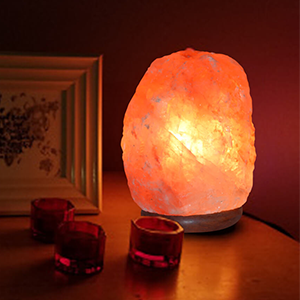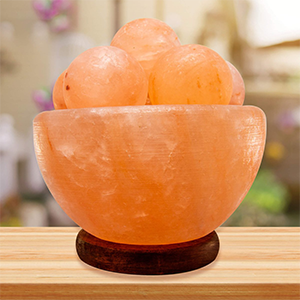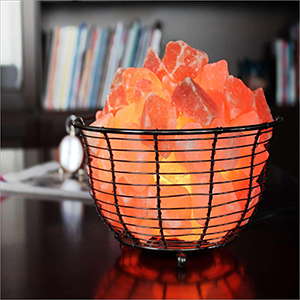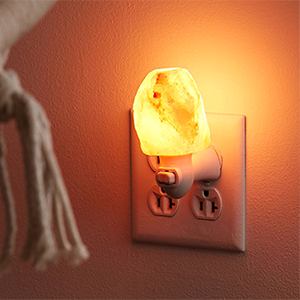Decorative Salt Lamps
Reasons To Keep A Himalayan Salt Lamp In Every Room Of The House
Balance Electromagnetic Radiation
Everyday appliances such as televisions, cell phones, computers and tablets release positive ions into the air constantly. These and other common electronics can cause an overflow of electromagnetic radiation (EM), which, although invisible, is believed to cause some serious long-term effects. Constant exposure to EM radiation is known primarily to cause fatigue, increase stress and weaken the immune system. Himalayan salt lamps emit negative ions and cancel out positive ones. Therefore, by neutralizing electromagnetic radiation, they help reduce artificial frequencies and even prevent static build-up.
Cilia are the finite hairs that line the windpipe and act like microscopic breathing filters. According to studies, positive ions decrease cilia activity while, conversely, negative ions have a more increasing and positive effect. Himalayan salt lamps are therefore believed to improve breathing by releasing negative ions that filter foreign particles and keep the lungs cleaner in general.
Enhance Overall Breathing Cleanse, Deodorize, and Purify Air
Himalayan pink salt lamps help clean the air through an operation called hygroscope, which attracts and absorbs contaminated water molecules from the immediate environment and locks them into the salt crystal. The process has the amazing ability to remove cigarette smoke, dust and other contaminants from the air. This benefit is particularly popular, as salty air acts as an overall health booster and can help clear the air passages.
Calm Allergies and Reduce Asthma
Himalayan salt lamps are believed to filter dust, mould, mildew and pet dander from indoor air. Just as a nasal saline spray uses salt to clear airways, they help to relieve allergy symptoms of all kinds. Those who struggle with asthma also claim to benefit from Himalayan salt. It is such an effective breathing aid that certain manufacturers have produced Himalayan salt inhalers targeted toward sufferers of asthma, bronchitis and other respiratory issues.
Alleviate Coughing and Other Symptoms of the Common Cold
It is possible that the negative ions released by Himalayan salt lamps may protect against airborne germs. In addition to removing these contaminants from the air, the salt also allows the body to filter air more effectively in an attempt to block any foreign particles from making it into the lungs. This can prevent the advancement of coughing, sneezing, sore throats, and other minor symptoms of the common cold.
Boost Blood Flow
Particular studies have suggested that negative ions, such as those emitted by Himalayan salt lamps, can accelerate blood flow. This boost helps to improve several disorders of the vascular system and can prevent certain damage to the lungs.
Raise Energy Levels
Positive ions deplete the body of energy, and it is believed that Himalayan salt lamps can actually do the opposite. The negative ions increase energy levels, which yields a refreshing effect similar to the feeling of rejuvenation achieved from spending time in nature.
Sharpen Concentration and Performance
Exposure to negative air ions reduces stress and enhances overall performance. Negative ions increase blood and oxygen supplies to the brain, making Himalayan salt lamps great at improving concentration. They also provide a boost of the neurotransmitter serotonin, which literally creates the feeling of happiness.
Enhance Mood
Many studies suggest that negative ions improve mood and energy levels by increasing serotonin in the brain. Therefore, Himalayan salt lamps can benefit people suffering from seasonal affective disorder (SAD) and other forms of depression.
Reduce Stress and Promote Relaxation
Himalayan salt lamps can be used as an aid in color therapy (chromotherapy), an alternative method of diagnosing and treating a large number of illnesses. They produce a soft light in hues of ambient orange, yellow and red that helps with stress, attention deficit disorder, and general relaxation, among others. The serene light is thought to balance physical, spiritual and emotional energies.
Improve Sleep
Over-exposure to positive ions reduces the brain’s blood and oxygen supply, which can lead to irregular sleeping patterns. The negative ions from a Himalayan salt lamp are said to reverse this effect, making them a popular sleep aid. Also, in direct relation to chromotherapy, the soothing light can help people who suffer from insomnia.




